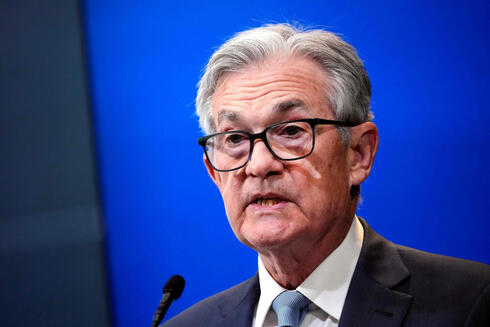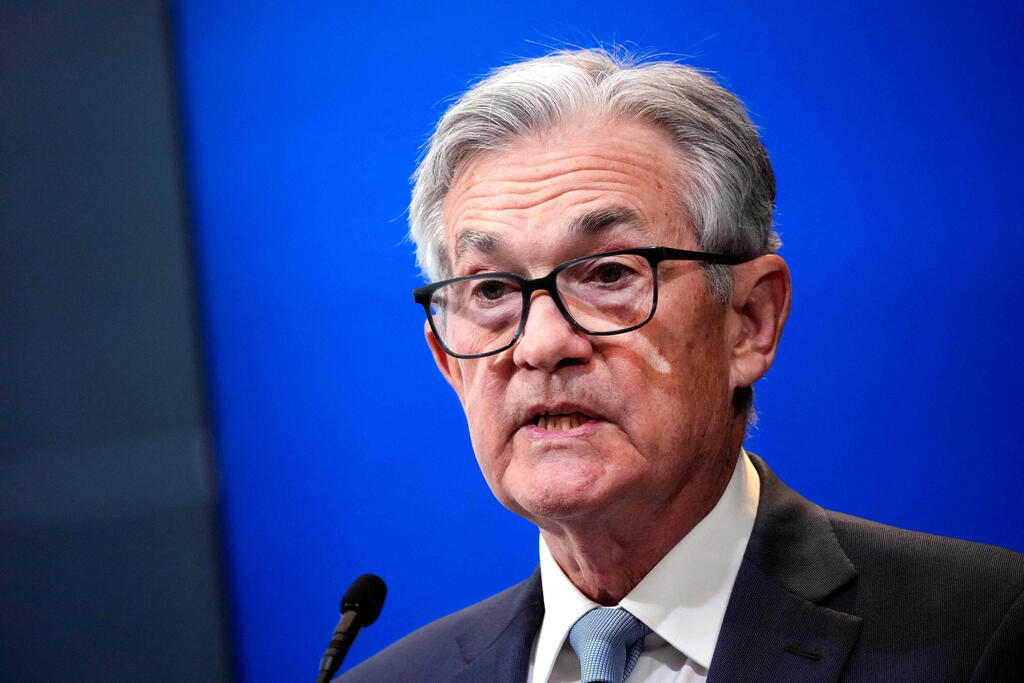
ISRAEL AT WARWill the Fed halt interest rate hikes in the aftermath of Israel-Hamas war?
ISRAEL AT WAR
Will the Fed halt interest rate hikes in the aftermath of Israel-Hamas war?
Wall Street estimates that the sharp rise in US government bond yields and the fear that the war with Hamas will escalate into a widespread and protracted war in the Middle East increase the chance that interest rates in the US will not rise again this year
The U.S. stock market rose on Tuesday for the second day in a row, following estimates that a series of dramatic developments will stop the rise in interest rates. Prior to this past weekend, more than 60% of investors in the U.S. estimated that the Federal Reserve would raise interest rates at its next meeting, in three weeks. But on Tuesday, more than 70% of investors believed that interest rates would remain unchanged in the upcoming Fed decisions - both in November and in December.
The change in investor sentiment was the result of statements by two senior officials at the Fed, one of whom is considered particularly close to Chairman Jerome Powell, that signaled that interest rates may not rise until the end of the year.
The war that broke out in Israel over the weekend has a certain weight in changing this direction - and this is not necessarily good news for Israel. Some of the players on Wall Street expressed fear of an escalation into a widespread and protracted war in the Middle East, in light of the determined actions of the American administration, which include the transfer of the Gerald Ford aircraft carrier to the coasts of Israel and Lebanon. In such a scenario, the Fed will not rush to take action, but will wait to see the economic effects of the unexpected geopolitical events.
The expectations in the markets are that oil prices, which tend to rise during wars - and especially in the Middle East - will not have a significant effect on inflation, which will allow the Fed to sit on the fence when it comes to interest rates. The assumption is that even if there is another jump in oil prices that rose on Monday, and moderated a little yesterday, it will not be prolonged because no damage to oil production is expected. This is as long as the war does not spread towards oil producing countries. The shares of the Israeli companies traded on Wall Street also recovered for the most part yesterday. It seems that the American investors do not anticipate, at least at this stage, any damage to Israeli high-tech activity.
However, the main reason for the change in interest rate forecasts is the sharp jump in bond yields last week. Since the end of July, ten-year U.S. government bond yields have jumped from 4% to almost 5%, a 16-year high.
The historically high yields hurt both the business sector and households because they make debt too expensive. For example, interest rates on 30-year mortgages in the U.S. have reached 7.5%, a record of more than two decades. Similar to Israel, the American real estate and construction industry has turned to Fed Chairman Powell in recent days with a request to stop interest rate increases so as not to deepen the real estate crisis.
However, alongside the real estate market showing signs of weakness, the American economy refuses to cool down - and this is what supported expectations for another interest rate hike until the beginning of this week. The macro data published last week showed that the labor market is still very strong even though the interest rate is already at 5.5%-5.25% after a long streak of hikes. In its last meeting, the Fed did not raise interest rates.
Unlike normal times, it is not possible at this stage to make assumptions about the interest rate in Israel based on the interest rate decisions in the U.S. The direction of the interest rate here will be decided by the behavior of the shekel and the expected jump in inflation on the one hand, and on the other hand by the Bank of Israel's decision to support the economy that will suffer damage depending on the continuation of the war.















